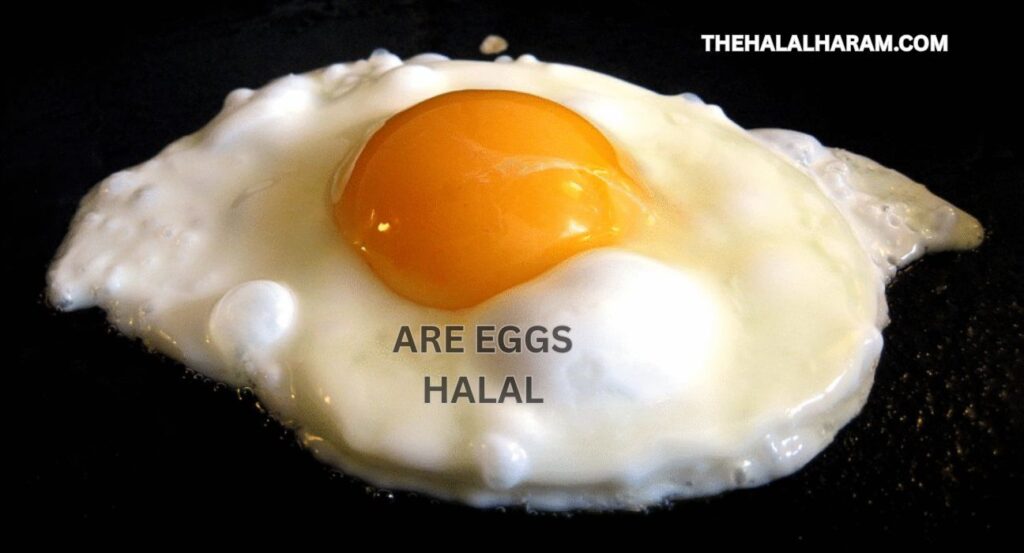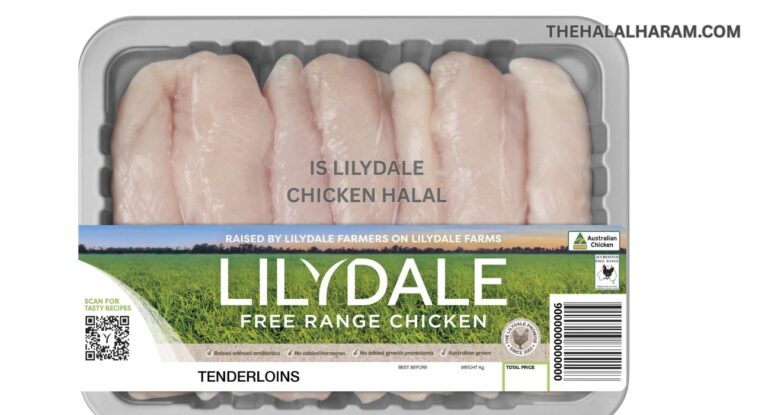Are Eggs Halal? A Complete Guide for Muslim Consumers
Introduction
Are eggs halal? If you’re Muslim, it’s really important to keep halal food in your diet so you feel spiritually clean. Eggs pop up in nearly every kind of meal, so you need to make sure where they come from and how they’re handled lines up with Islamic law. This guide shows you everything you need to know to pick egg that meet halal standards.
Read More: Is Red Rooster Halal
What Does Halal Mean?
Halal Defined
Halal means “permitted” in Islamic law, and it applies to every part of life, especially food. For something to be halal, it has to come from a lawful source and cannot have anything haram in it, like pork, blood, or alcohol. The purpose is to make sure your food is clean, that animals are treated kindly, and that your spirit stays pure.
Why Halal Matters in Food
For Muslims, food is more than just fuel; it’s about obeying Allah. Eating halal shows that you are following His guidelines and avoiding anything that could harm you or cloud your spirit. That’s why even an everyday item like an egg needs to be checked from the farm to your plate to ensure it’s completely halal.
Are Eggs Halal by Default?
Natural Origin of Eggs
Eggs come from halal animals like chickens, ducks, and quails. Since eggs are laid without any need for slaughter, most Islamic scholars say they are halal by default. This idea works well for clean, unfertilized eggs that you find in most stores.
Fertilized vs. Unfertilized Eggs
Unfertilized eggs in the store are halal because they don’t have any embryo starting to grow. Fertilized eggs can be a different matter, especially if any growth has begun, but these eggs aren’t usually sold for eating. If you can tell whether an egg is fertilized, you can be more confident in your halal choice.
Factors That May Change an Egg’s Halal Status
How the Bird Is Raised
The type of bird is important, but the bird’s living conditions also matter. If the bird eats haram feed or is raised in unhygienic places, its eggs can be questioned, too. This is rarely a concern for raw eggs, but many practicing Muslims feel that ethical farming practices give extra peace of mind.
Cross-Contamination Risk
Eggs can lose their halal status if they touch anything haram. For instance, keeping eggs beside pork or processing them in a place that uses non-halal materials can contaminate them. For this reason, halal-conscious shoppers should always ask for careful handling and separate preparation areas.

Are Store-Bought Egg Halal?
Common Egg Brands
In the UK, USA, and most Muslim-majority countries, supermarket egg are mostly halal. They are usually unfertilized and made under strict health rules. Still, some brands may use processing aids or additives, so it’s wise to check the label.
Importance of Packaging Labels
Look for words like “vegetarian-fed,” “free-range,” or “halal-certified” on the carton. While a certification stamp isn’t always required, these labels help reassure you that the eggs are free from haram ingredients or contamination.
Halal Certification and Eggs
Do Eggs Need Halal Certification?
Raw eggs generally don’t need halal certification because they come from a naturally halal source. However, once eggs are processed—like in powdered form, frozen mixes, or ready-to-eat dishes—certification is important. This ensures any added ingredients are halal as well.
Why Egg Certification is Essential
When we enjoy meals on planes, at hotels, or in restaurants, processed egg dishes can quietly include haram ingredients—like non-halal cheese, unknown emulsifiers, or questionable cooking oils. Halal certification in these settings means every ingredient in the dish, not just the egg, meets strict halal standards. It gives us the confidence to enjoy the meal without the need to cross-check every label.
Eggs from Non-Halal Birds
What’s the story with eggs from haram birds?
Islam prohibits certain birds, like vultures, crows, and birds of prey. Because the flesh of these birds is haram, their eggs are too. The good news is these birds are not part of the commercial egg supply, so the risk of encountering them in the marketplace is very low.
Why Knowing the Bird Type Matters
Islamic scholars explain that the species of bird determines whether the egg is halal. If the bird is haram, its eggs are automatically haram, too. Birds that scavenge or hunt small animals are excluded from the halal category, highlighting the need to trace the egg back to its origin.
Are Processed Egg Products Halal?
Liquid Eggs and Egg Powders
Liquid and powdered egg products sometimes have added preservatives, coloring agents, and stabilizers. Some of these can come from haram sources, like certain animal enzymes. If the packaging doesn’t clearly show a halal seal or certification, the best option is to steer clear of the product. Muslims can also contact the manufacturer to get a complete list of ingredients and details on how the product is made.
Packaged Foods with Eggs
Many baked goods, dressings, and snacks contain eggs. Even if the eggs are halal, other ingredients may not be. Gelatin, wine flavoring, and animal fats are common culprits. To stay on the safe side, always read the full ingredient list and look for a halal certification logo on the package.
What Do Islamic Scholars Say?
Scholarly Views on Eggs
Muslim scholars from all main schools of thought agree that eggs from halal birds are lawful to eat. They add that as long as the egg does not show any signs of life or development—such as blood spots or a small embryo—it stays halal and fit for consumption.
Consensus on Halal Eggs
There is strong, nearly universal agreement on the basic halal status of eggs. Scholars stress the need for the egg to be clean, free from harmful additives, and processed in an environment that does not contain haram substances.
Are Eggs Halal in Restaurants?
Cooking Methods Matter
Even if the egg itself is halal, how it’s cooked can change things. For example, frying eggs in the same pan that cooks pork can cause cross-contamination. To avoid this, ask for separate utensils and pans, or pick a vegetarian-friendly restaurant where meat isn’t cooked.
Asking the Right Questions
When you order eggs, it helps to ask a few simple questions: How are the eggs cooked? Do they touch any meat? What oil or butter is used? At a chain restaurant, check if they crack fresh eggs or use a pre-mixed batter. Small details can make a big difference.
Are Eggs Halal in Islam?
Islam allows eggs if they come from animals you can eat, like chickens, ducks, or quails. Scholars agree that unfertilized eggs from these birds are halal. As long as the egg has no embryo and isn’t from a forbidden animal, you can eat it.
Are Eggs Halal Food?
Yes, eggs are generally considered halal in Muslim homes. They aren’t slaughtered animals, they have no forbidden add-ins, and they come from halal sources like chickens or quails. Just take care with processed foods or when they’re cooked in the same pan as pork or alcohol, since cross-contamination can happen.
Are Eggs Halal Certified?
Whole, fresh eggs usually skip the halal label because they’re halal by themselves. On the other hand, liquid egg products, powdered mixes, or ready-made egg dishes definitely should have the halal mark. That way, you know any extra ingredients, preservatives, or production methods respect Islamic rules.

Final Verdict: Are Eggs Halal?
So, are eggs halal? Almost always—especially when they’re from halal birds like chickens or ducks. What really matters is how they’re gathered, stored, and cooked. To stay on the safe side, buy eggs in clear packaging with a halal label, and ask questions when eating out. A little caution ensures you can enjoy eggs while sticking to your halal guidelines.
Read More: Is Burgerism Halal
Frequently Asked Questions
1. Are eggs halal for Muslims to eat?
Yes, eggs from halal birds like chickens and ducks are halal. The eggs themselves are halal unless mixed with haram substances.
2. Do eggs need halal certification?
Regular whole eggs usually do not need halal certification. However, processed eggs with added flavorings or mixes may need halal approval.
3. Can I eat eggs with meat in a halal diet?
You can enjoy eggs with halal meat. Just make sure the meat is halal certified and not cooked alongside anything haram.
4. Are fertilized eggs still halal?
Fertilized eggs are halal as long as the embryo has not developed or formed blood. Scholars usually recommend avoiding eggs that show development.
5. Do all eggs sold in supermarkets count as halal?
Most eggs in supermarkets are halal, but check if they are cooked alongside non-halal substances or processed with haram ingredients.
6. Are duck and quail eggs halal too?
Yes, eggs from halal birds like ducks and quails are halal. The same rules for chicken eggs apply.
7. Can Muslims eat eggs at restaurants?
Yes, Muslims can eat eggs at restaurants as long as they are not cooked with bacon, lard, or sauces that contain alcohol.
8. Are powdered or liquid eggs halal?
Not necessarily. Always look for a halal label or certification on the package. Some powdered or liquid eggs may have emulsifiers or preservatives that aren’t halal-approved.
9. What makes eggs non-halal?
Eggs turn non-halal if they come into contact with pork, alcohol, or if they’re cooked on the same surface as haram items.
10. Is it safe to assume all eggs are halal?
No, you shouldn’t rely on assumptions. Raw eggs are usually halal, but you still need to check how they’re cooked or packaged to be sure.





